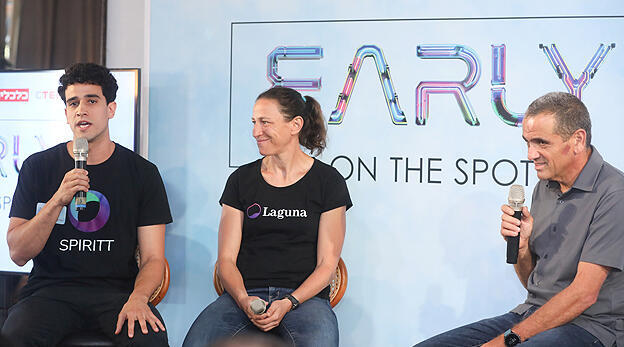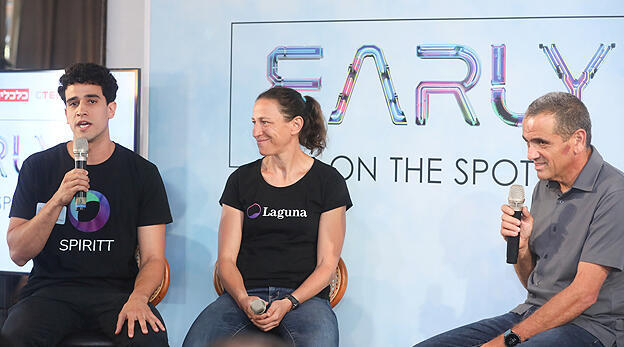
"When we raised money two and a half years ago, it felt almost free; today it is no longer like that"
Yael Peled Adam, co-founder and CPO of Laguna Health, added that her startup has “always been conservative in spending and in the employees we brought in. We have 24 employees and have raised $23 million”
"Young startups today should have their eyes wide open and be careful not to spend a lot of money," said Yael Peled Adam, Co-Founder and CPO of Laguna Health, which operates in the field of digital health, speaking at Calcalist’s Early on the Spot event in Tel Aviv.
"When we raised the money two and a half years ago, it felt almost free; today it is no longer like that," added Peled Adam, who spoke on a panel alongside Tamir Magen, CEO and Co-Founder of SPIRITT. She presented firsthand the challenges faced by young startups and how they tackle them. "Although we recently raised a nice and significant Series A round, our employees who joined the company two years ago are used to great abundance, and we have to manage these expectations. We have never gone crazy. We have always been conservative in spending and in the employees we brought in. We have 24 employees and have raised $23 million.
"It is important to look at how growth is managed in relation to revenues and not to grow before there are revenues coming in. The digital health field was not affected by the crisis and continues to receive investments. It is a world that is ready for change, in large part due to the coronavirus. There is a challenge of customers who are not in a hurry to make a decision, and taking time is a death blow, meaning you will run out of money. Fortunately, we conducted a clinical trial with hundreds of people that proved we lower hospitalization costs for insurance companies. It is impossible to sell products today without a proven return on investment."
Tamir Magen, CEO and Founder of SPIRITT, which operates in the field of generative artificial intelligence, said: "People are looking for a way out of the crisis with more financially accessible methods. We had good timing and started doing things in the field of AI before it was cool, and now that the hype started to rise, it turned into a big advantage, making us even more desirable. Since we entered the field relatively young, we didn't have many preconceived notions. So we started by developing a product with value and achieving revenue because that's how we learned to establish a business. In business, you give value and get money back. Before the crisis, we accepted this in our heads, that we were making progress in revenue, not rapid growth. Now, after the crisis, they really appreciate how we keep the talent limited and high-quality. We have a team of around 12 employees and have raised $5.5 million. We have achieved a lot with a relatively small team because we are careful about hiring very high-quality talent."














